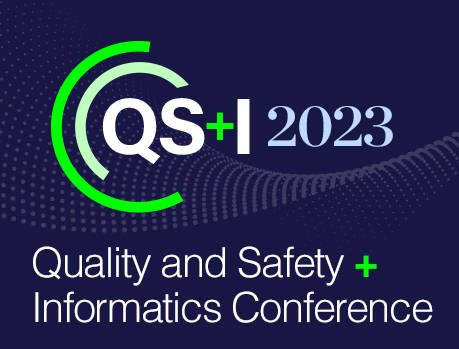Harmonizing Horizons: Reflections from the ACR Quality and Safety + Informatics Conference 2023

The 2023 American College of Radiology Quality and Safety + Informatics Conference (ACR QS+I 2023) heralded a groundbreaking integration of two formerly separate, influential conferences. This event was a testament to its motto of "scaling quality and innovation." The event's agenda featured insights from a cadre of leaders, innovators, and specialists in the field. While it's challenging to represent the entirety of the conference in a single blog post, I endeavor to spotlight the salient experiences and insights gleaned from this seminal event.
Day 1: Foundations of Quality and Innovation
The first day began with Dr. Kedar Mate of Weill Cornell Medicine, who, in his address 'Systems Work is Culture Work,' underscored the foundational role of the scientific method in bolstering health system performance and clinical outcomes. He highlighted the importance of establishing standards, embedding evidence-based practices, and optimizing operational systems as cornerstones for achieving exemplary health systems. His session culminated with a compelling statement of the quintessential elements of a successful culture: the synchronous evolution of people and operational systems.
Subsequent discussion pivoted to the imperative of equity in healthcare, exploring policies, regulations, and practices that alleviate financial burdens and promote fairness across diverse settings.
Navigating Data-Driven Healthcare
Dr. Richard Sharpe of Mayo Clinic and Ryan Darke, MHA from Stanford University underscored the significance of workflow development to track data and preempt systematic quality lapses. Their practical examples demonstrated the potency of real-time analytics and targeted interventions to improve health outcomes.
The day concluded with a spotlight on ACR Learning Network's initiatives, showcasing programs that champion the transition to seamless workflows and superior quality benchmarks. The programs also foster a collaborative ethos, encouraging hospitals to engage with ACR and peer institutions.
Day 2: Crafting Success in a Learning Healthcare Ecosystem
Dr. Tessa Cook of Penn Medicine delved into the lifecycle of clinical informatics implementation, drawing on institutional case studies and research endeavors. She imparted wisdom on the necessity of closing the feedback loop, engaging diverse stakeholders, navigating the complexities of information technology (IT) governance, executing automation, and fostering a forward-looking, agile culture.
The day's agenda also covered practical hurdles and safety considerations inherent in deploying clinical AI on a large scale, while highlighting ACR's informatics advancements, such as AI transparency challenge and AI Central.
Day 3: The Emergence of Generative AI in Radiology
Dr. Keith Dreyer of Mass General Brigham - Harvard Medical School provided a thorough review of the potential of generative AI, charting the evolution of AI and its divergence from conventional applications. He discussed the intricacies of GPT-4 and the art of prompt engineering, tasking the audience with imagining the current and future implications of generative AI in clinical practice.
Dr. Woojin Kim further dissected the technical nuances of transformers and generative AI, presenting state-of-the-art medical applications, with a cautionary note on their limitations and the due diligence required for their adoption.
Discussions then transitioned to the next generation of reporting, as well as the ethical and regulatory landscapes concerning clinical AI, equipping attendees with insights into the vigilant deployment and monitoring of AI models.
Empowerment of Trainees
A special experience of ACR QS+I 2023 was its inclusion of trainees through scientific presentations and networking events. These interactions facilitated connections with eminent professionals and provided a window into the latest developments in industry.
In Conclusion: The Convergence of Quality, Safety, and Informatics
The synergy between quality, safety, and informatics is pivotal for the advent of next-generation healthcare. Immersion in pioneering solutions and engagement with thought-leaders has been a transformative journey, providing profound inspiration and excitement to collaboratively advance our discipline. I eagerly anticipate future collaborations and camaraderie that awaits at the next ACR gathering.
Dogan Polat, MD | PGY-3 Diagnostic Radiology Resident | University of Texas Southwestern Medical Center
Harmonizing Horizons: Reflections from the ACR Quality and Safety + Informatics Conference 2023
-

You may also like
From Bias to Breakthroughs: Key Takeaways from the 2024 ACR-SIIM Data Science SummitJuly 11, 2024 | Po-Hao (Howard) Chen, MD, MBAAs radiologists, we strive to deliver high-quality images for interpretation while maintaining patient safety, and to deliver accurate, concise reports that will inform patient care. We have improved image quality with advances in technology and attention to optimizing protocols. We have made a stronger commitment to patient safety, comfort, and satisfaction with research, communication, and education about contrast and radiation issues. But when it comes to radiology reports, little has changed over the past century.